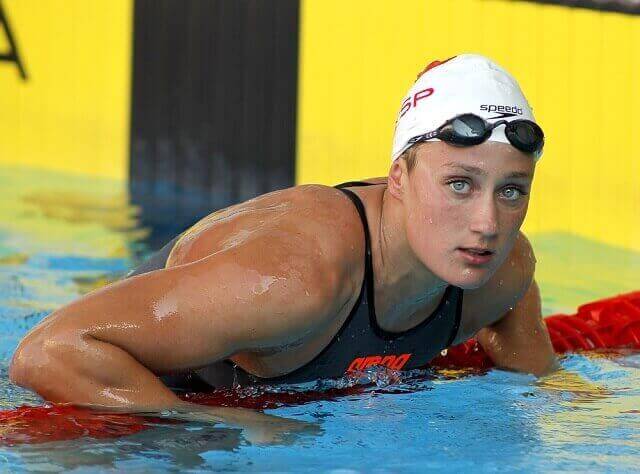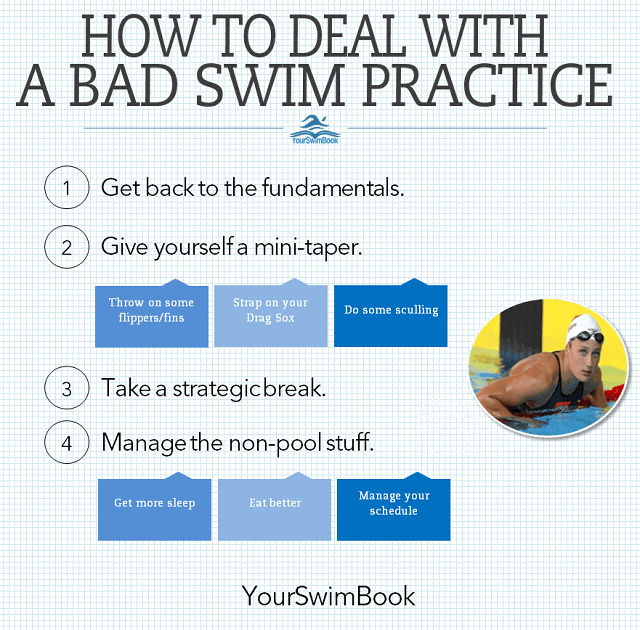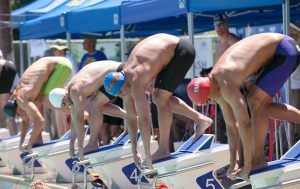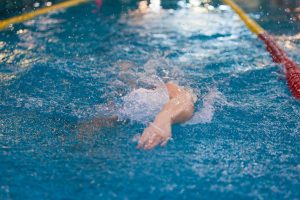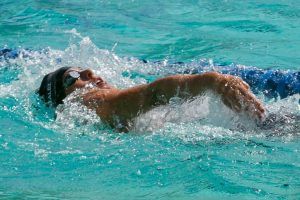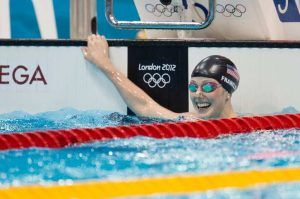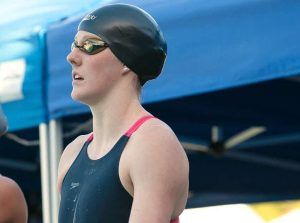Maybe it happened today. Or yesterday. Or perhaps it will happen tomorrow.
You know it well enough, that uneasy feeling and frustration…
…that workout.
You walked out on deck feeling loose and energized, but when it came time to the main set, your stroke and conditioning abandoned you. Or it was test set day, and after having invested a quality couple of months of training you were expecting better from yourself.
Whatever the case, it is understandable that we get irritated and take it personally. Our swimming is a result of the time and energy we spend on it, as well as a reflection of our talents and the physical gifts we bring to the sport.
While these feelings are natural, they also reflect that you have high expectations for yourself and your swimming, which is great! It means that you expect the best from yourself, and anything less is not cool.
That being said, bad practices are going to happen. I promise you this. Every once in a while they’ll blindside you, in much the same inexplicable way as the time you swam a near-PB on five hours of fractured sleep.
Knowing that they happen, what can we do to salvage the most of our training session when things go sideways on us? How can we best go about getting back on track with our workouts?
Here are a few ways to give that crappy workout some emergency CPR and come out of it producing some useful work:
Get back to the fundamentals.
When I am having a bad workout in the water it is often because my stroke feels off and out of sorts. My catch isn’t sticking the way it usually is. My hand is slipping through the water.
The answer here is simple…
If you find that you are redlining far below the speed you want to be at, dial it back down and get back to basics.
Pick apart your technique and do one thing with complete and utter awesomeness. Whether it is your streamlines, your upkick while on the kick board, or having a devastatingly high elbow catch, choose one thing and execute it to the best of your ability.
(Doing this also has the curious side of effect of bleeding excellence into other parts of your swimming as you will see. Greatness is contagious.)
By forgetting about the pace clock and drilling down on your technique it frees you to focus on something with full focus and attention. Once you feel like you have a concrete grasp on your technique, slowly ramp up the intensity again.
Give yourself a mini taper.
When your conditioning is abandoning you, and you need to give your swimming a kick-start, implement one of the following to shock and cajole your stroke back to where you want it to be:
- Throw on some flippers and get your speed back with some short bursts of blinding swimming. This is particularly helpful if you are feeling frustrated to the point of anger in the water. No better way to burn it off than by hammering down some faster-than-race-pace swimming.
- Strap on some Drag Sox to give your feet and legs an unbelievable feel for the water. There are a heap of reasons that I love my Drag Sox, but none so handy as using them when I am having an “off” session in the water. Why is this? Because the moment you take them off it feels like someone strapped a jet pack to your back.
- Do some sculling. Tossing your hands up in front, above and behind you and getting your feel for the water back with some sculling. My favorite sculling drill is to put on a snorkel and do a slow sculling motion that mimics my pull. I’ll spend a few second up in the catch, a few more at the catch, hang out for a bit with my arm pointing at the bottom of the pool, and finally by my hips.
Instill some confidence with some random PB’s.
Progress comes in many forms.
It doesn’t strictly have to be in the form of your best event, and it doesn’t even have to be something that you do in the pool that demonstrates progress.
For instance:
- How fast you can kick a 25m with a kickboard.
- How fast you can sprint a 50m with Drag Sox on.
- How many strokes you take during a set of 200’s.
- How many crunches you did after practice.
- Time spent stretching out your hamstrings…
- And on and on.
These are all easily measurable and quantifiable ways to record progress in the water (and out of it). If you are doing something you have never done before it is tough not to feel the pride and satisfaction that comes along with it.
Take a strategic break.
When things are continually getting worse, or not improving despite your best efforts it’s time to take a step back.
For myself, when things are getting to be close to frustrating to the point of helpless rage I find it helpful to go for a walk. You know, in that nature thing that is outside.
Getting outdoors and out of the cap for an hour or two, with nature there to properly give me perspective, has always been a powerful way to pull me off the ledge.
For you it might mean taking a full day off of training. Or going in and doing a loosen up session. Or avoiding your main stroke at your next practice and working on your off strokes.
Whatever the case, learn to know yourself so that you can deal with the frustrations of poor training in a manner that will have you back on track sooner than later.
MANAGE THE NON-POOL STUFF
Of course, there are the things that take place outside of the pool that create the conditions in which terrible practices like to grow.
The three big ones:
1. You aren’t getting enough rest. Proper sleep is almost always the first thing to get cut when a swimmer’s schedule begins to load up (more on that in a minute). Sleep is absolutely the easiest thing you can do this season to improve your performance in the water this season. Besides the host of health benefits that come with it, it will help your body recover and restore itself before the next punishing session in the water.
2. Your mouth is a corn syrup dumpster. If we are what we eat, what are you? A walking Dorito? A tall drink of fizzled corn syrup? Outside of the fact that you are most likely growing at a fairly rapid rate, your hours and hours of training in the water demand replenishment. Lots of it. Your body is a finely tuned machine and performs best when properly fueled and hydrated. Treat your body like the Lambo that it is and not as a dumpster.
3. You are stressed out. One of the most powerful lessons you will learn from swimming happens outside of the water. It’s the daily time crunch where you learn to prioritize and be efficient with the hours you have each day. Swimmers have to be excellent at time management—their schedule allows for nothing less. This means having a plan for those exceptionally busy times of the year (exams, holidays, and so on) where you know that your time is at a premium.
In Summary
Bad practices will happen. It’s not a matter of if, it’s a matter of when.
What happens next is ultimately up to you. You can choose to make the most of a stinky situation or let the workout define the rest of your day.
Take a breath, reset yourself and get yourself back on track.
Take Your Swimming to the Next Level
YourSwimBook is a log book and goal setting guide designed specifically for competitive swimmers. It includes a ten month log book,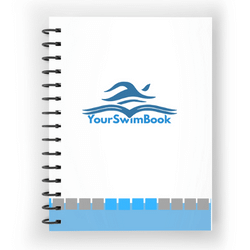
Learn 8 more reasons why this tool kicks butt now.
Join the YourSwimBook weekly newsletter and get motivational tips and more straight to your inbox. Sign up for free here.

